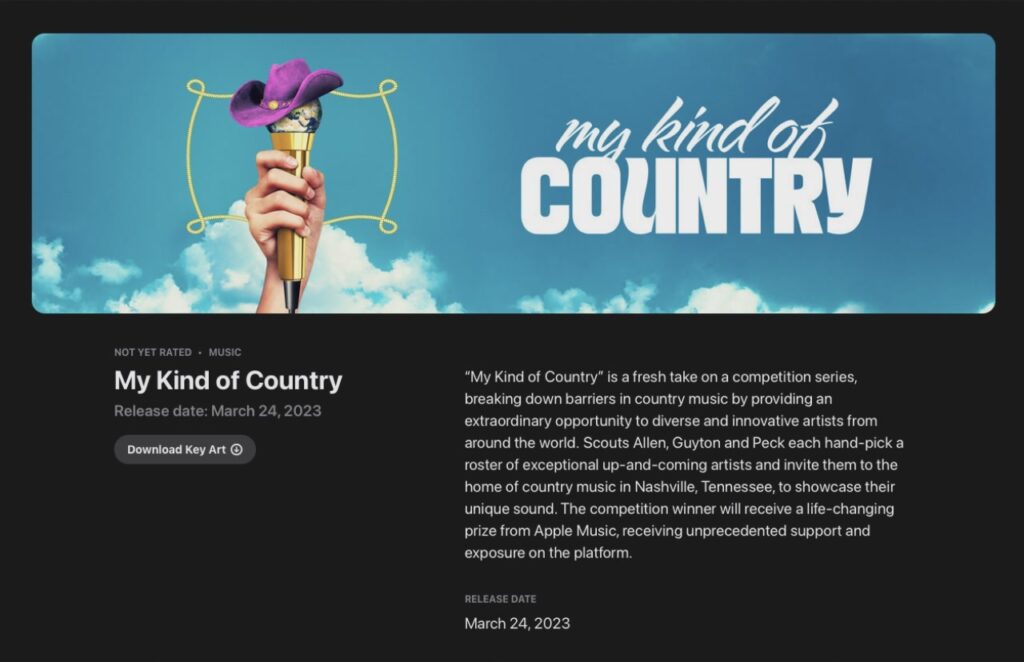
Pretty much every other popular genre has been through the “talent search” system, so why not country music?
My Kind Of Country launched on Apple TV+ in late March and was, partly out of necessity due to the talent search format penduluming in and out of favour so often, at pains to point out this was going to be slightly different to what had passed before.
“My Kind Of Country is a fresh take on a competition series, breaking down barriers in country music by providing an extraordinary opportunity to diverse and innovative artists from around the world,” explains Apple.
It has three huge, and highly credible, country artists acting as scouts for the show: Jimmie Allen, Mickey Guyton and Orville Peck. They are tasked with travelling the world, not just country heartland the US, to find the next generation of stars in the genre.
On top of this, Reese Witherspoon and Kacey Musgraves are executive producers and will also make cameos throughout the series.
It runs for eight episodes and the winner – who will have to go through assorted rounds, workshops (on writing and performing) and a showcase in Nashville at The 5 Spot – will win a “life-changing prize” from Apple Music, including “unprecedented support and exposure on the platform”.
It is not clear if a label deal is on the table for the winner or if Apple will play that surrogate role. If it is the latter, that would be a really “fresh take on a competition series”.
Much has been made of the diverse nature of the judging panel (two of the judges are Black and one is openly gay) as well as of the contestants (they come from Mexico, India and South Africa as well as the US). This is in a large part to show just how far country music has come in recent years, but at the heart of it is the search for genuine talent.
Country has a loyal audience, but it also has a highly discerning audience. Acts do not get a free pass and really have to prove they have the chops. Whether it will have a long-term damaging impact, as The X Factor has arguably had on pop, by showing the audience just how acts are created and developed, remains to be seen.
For now, however, it is country music getting the kind of mainstream validation that other genres have perhaps taken for granted for too long.